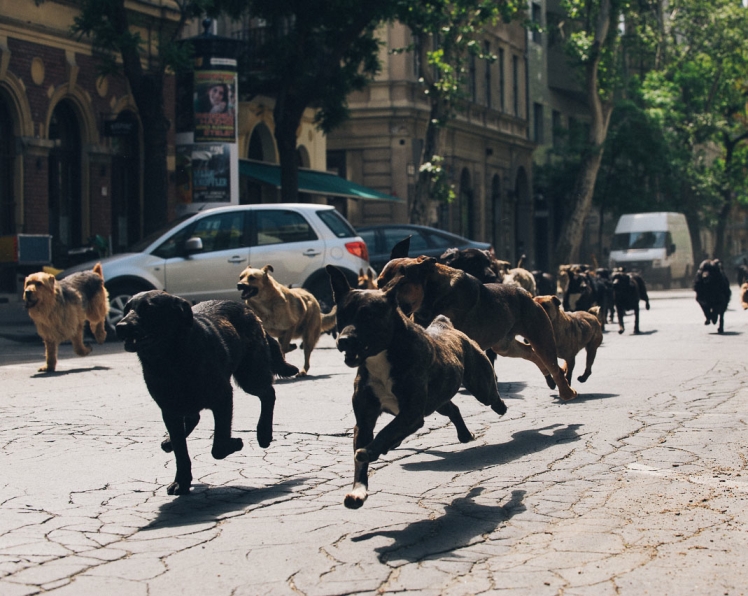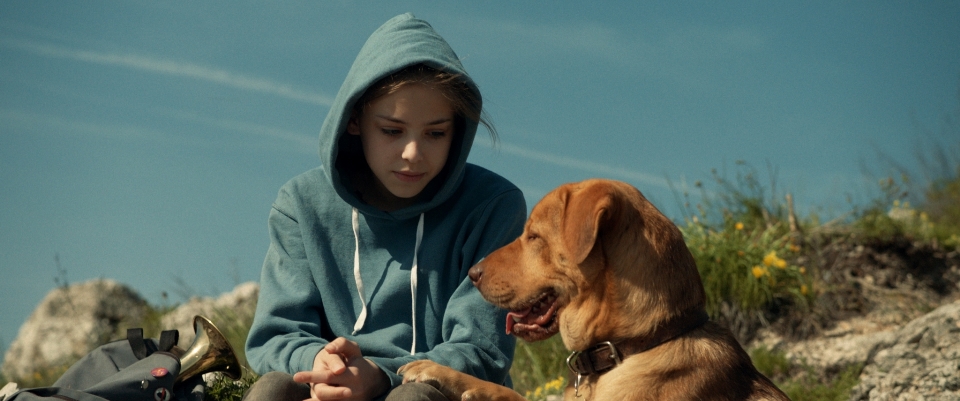With London and Chicago Fests ongoing, a few reports from each to cover more Oscar Submissions for Best Foreign Language Film. Here's our London friend David on Hungary's Oscar submission.

Let me start off, if you'll forgive me, by citing that oldest and meanest of acting adages: the one about never working with children or animals. That seems to be in the heads of every adult we see on-screen in White God, for every single one of them, without exception, treats an animal or a child badly in one way or another. Fortunately for the audience, the film is on their side. Violently so; be mean to a dog in White God and you'll be lucky if you don't get your bloody throat ripped out.
After a prelude in which Lili (Zsófia Psotta) is pursued through a deserted city by a hoard of dogs in what can only be described as a scene from the dogocalypse, we flashback to see what brought the poor girl to this point. Her mother's off abroad for three months, so Lili is being unloaded on her father, Daniel (Sandor Zsoter), a much older man whom neither woman seems to have a particularly sparkling relationship with. He certainly doesn't have much time for Lili, and even less for her beloved dog, Hagen; after a visit from the authorities demanding he pay the requisite fees for a mixed-breed dog, Dad abandons Hagen on the side of a road.
Cue the swelling orchestral score as the devoted mutt bounds hopelessly after Lili's weeping face, and we're left wondering if this is a Hungarian remake of Homeward Bound. Before long, an adorably bedraggled canine sidekick latches onto Hagen, and their escapades eluding the dog catchers could have come straight from the annals of Disney animation. The Hungarian streets of White Godare a shade harsher, and just as Daniel's financial restraints have depleted his compassion, so Hagen finds himself in even more degraded climbs, sold to a man looking for a return to the dog fighting ring; 'this one's still got a heart' the man says, before proceeding to grind that puppyish love out of Hagen - now, obviously, named Max - in a brutal training montage that recalls the brilliant confrontational realism of Amores perros.

As Hagen progresses towards realising the eventual canine collective, Lili is making her own journey, a more generic coming of age story where her own engagement with society's dangerous trappings is tested. Tellingly, the film heavily features her role in a school orchestra, and the resulting orchestral score provides the film with some fittingly grandiose accompaniment for the astonishing dog choreography in the film's bravura final act. It's in these last stretches that White God really makes its mark, a genuinely tense, delectably absurd climax that leaves the Hungarian streets cowering. Narrative notes collide with daring exuberance, but writer-director Kornél Mundruczó is careful to include sobering notes of the reality lingering behind the theatrics.
White God screened as part of the 58th BFI London Film Festival.

21 of 83 Oscar Foreign Submissions Reviewed: Afghanistan, Argentina, Australia, Belgium, Brazil, Canada, Cuba, France, Germany, Hungary, Iceland, Israel, Italy, Latvia, Mauritania, Norway, Poland, Portugal, Sweden, Switzerland and Venezuela and The Foreign Oscar Charts